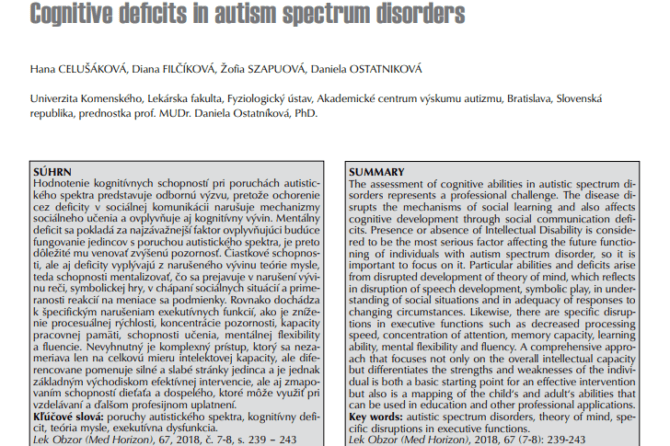
AUTHORS: Celušáková, H., Čelárová, D., Szapuová, Ž., Ostatníková, D.
ABSTRACT: The assessment of cognitive abilities in autistic spectrum disorders represents a professional challenge. The disease disrupts the mechanisms of social learning and also affects cognitive development through social communication deficits. Presence or absence of Intellectual Disability is considered to be the most serious factor affecting the future functioning of individuals with autism spectrum disorder, so it is important to focus on it. Particular abilities and deficits arise from disrupted development of theory of mind, which reflects in disruption of speech development, symbolic play, in understanding of social situations and in adequacy of responses to changing circumstances. Likewise, there are specific disruptions in executive functions such as decreased processing speed, concentration of attention, memory capacity, learning ability, mental flexibility and fluency. A comprehensive approach that focuses not only on the overall intellectual capacity but differentiates the strengths and weaknesses of the individual is both a basic starting point for an effective intervention but also is a mapping of the child‘s and adult‘s abilities that can be used in education and other professional applications.
Lekársky obzor. – Roč. 67, č. 7-8 (2018), s. 239-243. – ISSN (print) 0457-4214


